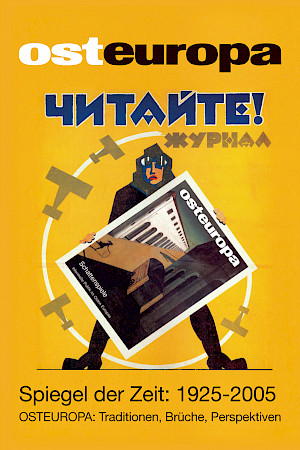“Objective but Not Neutral”
On the Development of Ostforschung after 1945
Deutsche Fassung
Abstract
Despite the burden of its association with National Socialism, Ostforschung managed to establish itself in West Germany as an academic discipline after 1945. This was due to the flexibility of its advocates, who knew how to make themselves and their research conform to the new political conditions: On the one hand, they stressed the political uses of their work for the dispute over the Oder-Neisse line and the issue of the German expellees from beyond that line; on the other hand, the Cold War provided a convenient means for suppressing individual incrimination in and German responsibility for Nazi crimes committed in Eastern and Central Europe during the Second World War. Only in the course of the 1960s did this field shed the German-centric, often anti-communist orientation that had dominated it for so long.
(Osteuropa 12/2005, pp. 113–132)



